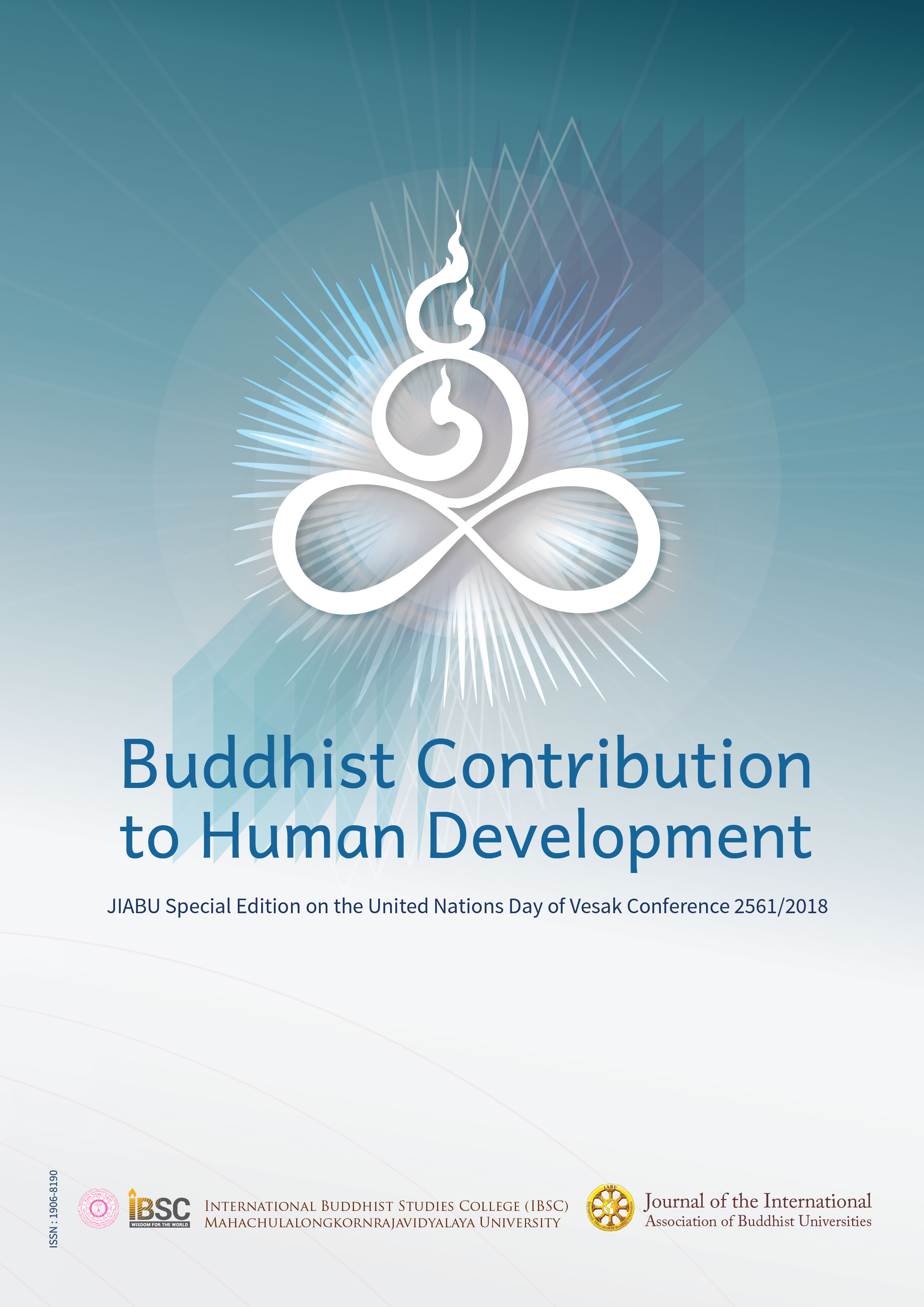Eudaimonistic Buddhism: Can Metta Transform and Redirect Our Societies and Save Our Environment?
Main Article Content
Abstract
This ideology of infinite competition, infinite growth, and infinite consumption that
our culture has been exposed to for over half a century denies one of our most fundamental
characteristics: our ability and desire to cooperate. We are exposed to more temptations
leading to addictions in our society than ever before. Consumerism stimulates us to shop, to
eat, to click on our smartphones day and night. Could it be that social disconnection is the
main drive for our consumerist economy; the main drive that keeps the greed and competition
in Wall Street steaming ahead to destruction? This ideology of infinite competition, infinite
growth, and infinite consumption that our culture has been exposed to for over half a century
denies one of our most fundamental characteristics: our ability and desire to cooperate. When
we put human flourishing instead of unlimited growth at the heart of our economy; when
we put friendly environments at the heart of our politics; in other words when we make it
clear in all our economic and political actions that we will leave no one behind; we can cure
humanity of its addictions, redirect our economy and politics, and save our one and only
planet. This paper looks to explore how Buddhism can contribute to human development,
using a comparative study of Eudaimonistic politics and economics to create and protect an
open benevolent society by eradicating the three addictive poisons that are at the heart of
Buddhist spirituality.
Article Details
Views and opinions expressed in the articles published by The Journal of the International Association of Buddhist Universities (JIABU), are of responsibility by such authors but not the editors and do not necessarily reflect those of the editors.
References
conference ‘Bringing wisdom and compassion to European societies’ (March 2018)
George Monbiot, Out of the Wreckage: A New Politics for an Age of Crisis, Verso, 2017
Kate Raworth, Old economics is based on false ‘laws of physics’ – new economics can save us,
The Guardian, 6 April 2017
between 1993 and 2014 (Mental illness soars among young women in England – survey, The
Guardian, 29 Sep 2016)
between 2000 and 2013 (https://www.kcl.ac.uk/ioppn/news/records/2013/May/Eating-disordersincrease.aspx)
between 2007 and 2014 (Mental illness soars among young women in England – survey, The
Guardian, 29 Sep 2016)
Johann Hari, Everything you think you know about addiction is wrong, TED Talk July 12,
2015
Johann Hari, Everything you think you know about addiction is wrong, TED Talk July 12,
2015
Edward Abbey, The Journey Home: Some Words in the Defense of the American West, Dutton,
New York, 1977
Kate Raworth, Doughnut Economics: Seven Ways to Think Like a 21st-Century Economist,
Cornerstone, 2017
Han F. de Wit, The Power of Buddhanature in Society, talk at the European Buddhist Union
conference ‘Bringing wisdom and compassion to European societies’ (March 2018)
Dario Doshin Girolami, To Cure the Heart, talk at the European Buddhist Union conference
‘Bringing wisdom and compassion to European societies’ (March 2018)
Robert Thurman, Inner Revolution, referred to by Charles Johnson, The Dharma of Social
Transformation, Tricycle, Winter 2006.
U-turn on forcing NHS to hand patients’ data to Home Office, The Guardian, 10 May 2018.


